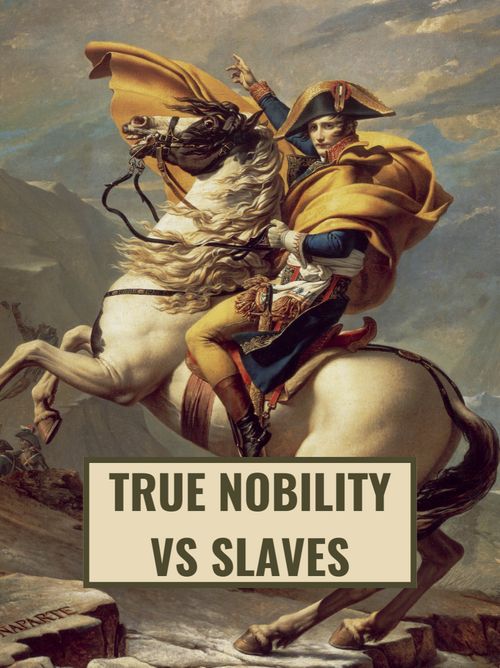Nietzsche's most radical idea: The Master-Slave Morality
Dec 28, 2021 · 2 mins read
0
Share

Nietzsche is a radical thinker, and his theory of the master-slave morality is his most radical idea. It's the most radical because it's the most far-reaching - it forces us to fundamentally rethink what we value. An accessible breakdown👇
Save
Share
The bedrock of the master morality: a deep love of oneself and the desire to go on adventures to reaffirm one's greatness. The bedrock of the slave morality: a deep hatred of the other, and redefining the great actions its incapable of as evil.
Save
Share
This redefinition is, for Nietzsche, slave morality's creative act. The slave moralist's spiritual motor is his "resentment" - what Nietzsche calls "the vengefulness of the impotent." From a physiological standpoint, the slave needs "external stimuli in order to act at all."
Save
Share
Happiness as action vs Happiness as narcotic. The noble person knows that "happiness should not be sundered from action." For the slave, happiness means the opposite: the "slackening of tension and relaxing of limbs." The slave finds his happiness in rest; the master in adventure
Save
Share
The slave despises his enemies, the master reveres - almost loves! - his enemies. The noble person wants an enemy "in whom there is much to honor" - the noble person wants a great enemy so he can prove himself to be greater. The slave has "poisonous feelings" towards his enemy.
Save
Share
The noble spirit is fundamentally unserious. For Nietzsche, one who is "incapable of taking one's enemies, one's accidents; even one's misdeeds seriously for very long" embodies the master morality. The master is forgetful, the slave knows "how not to forget."
Save
Share
How slaves become cleverer over time. Divorced from action, the slave morality plots elaborate mental revenge fantasies and over time, becomes "cleverer." To survive despite their weakness, they need to strategize, put on - and maintain! - masks, and "be provisionally...humble."
Save
Share
Nobility, on the other hand, holds cleverness to be beneath courage. Navigating reality is more important than navigating mental maps or verbal arguments.
Save
Share
How noble souls recognize one another. Noble souls value "bold recklessness" more than intelligence. Noble souls recognize each other through their "enthusiastic impulsiveness in anger, love, reverence, gratitude," and through "a bold recklessness in the face of danger."
Save
Share
Bottom line. The noble person is "unable to forgive simply because he - forgets." One with slave morality maintains a scrupulous record of his victimhood. Nietzsche exhorts us to embrace the recklessness of nobility and leave cowardly resentment behind.
Save
Share
0